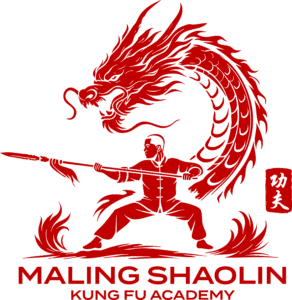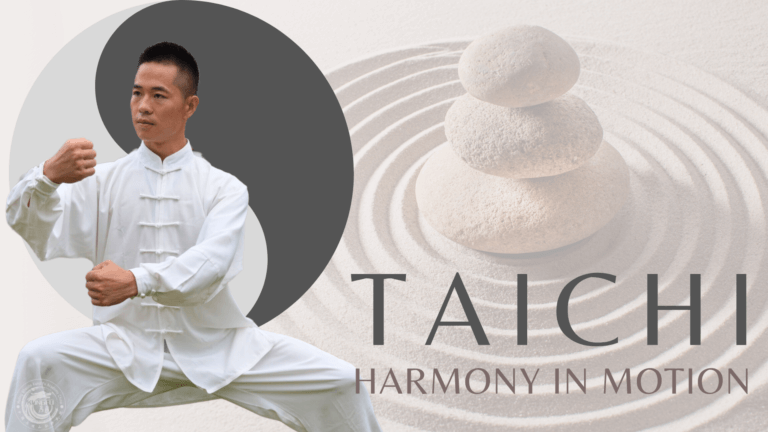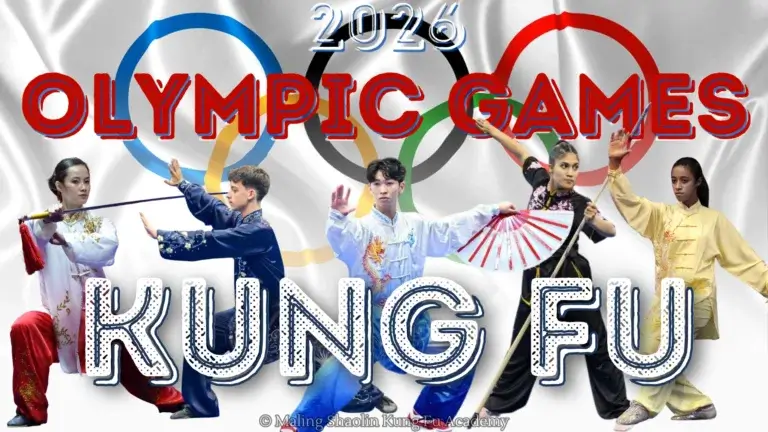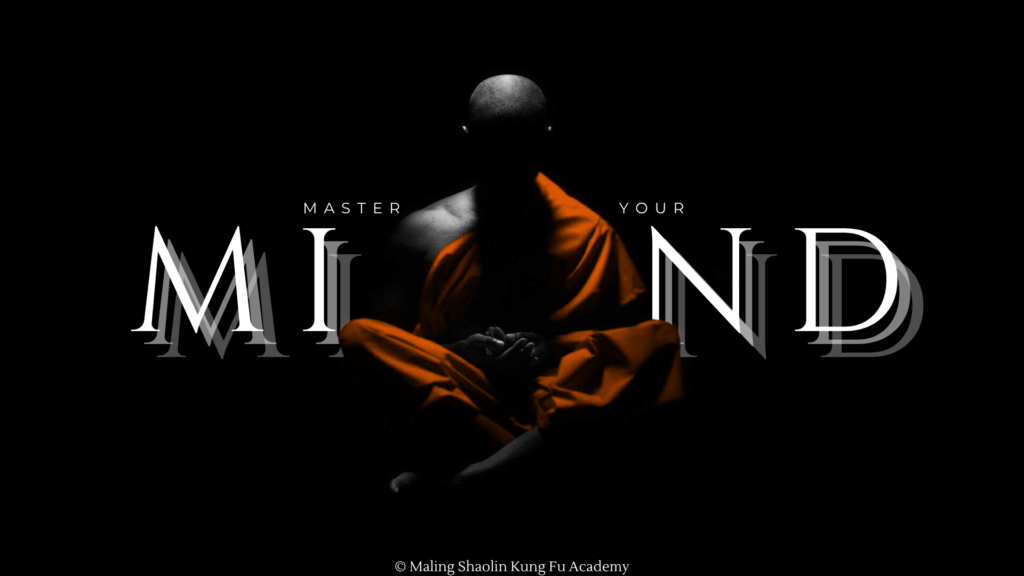
Martial arts are often perceived as physical disciplines focused on combat and self-defense. However, a critical and sometimes overlooked aspect of martial arts is the mental training that accompanies physical practice. Meditation plays a crucial role in this, fostering a deep connection between mind and body, enhancing focus, discipline, and overall mental well-being. This article explores the profound connection between meditation and martial arts, illustrating how mastering the mind is as essential as mastering the body.
The Historical and Philosophical Roots
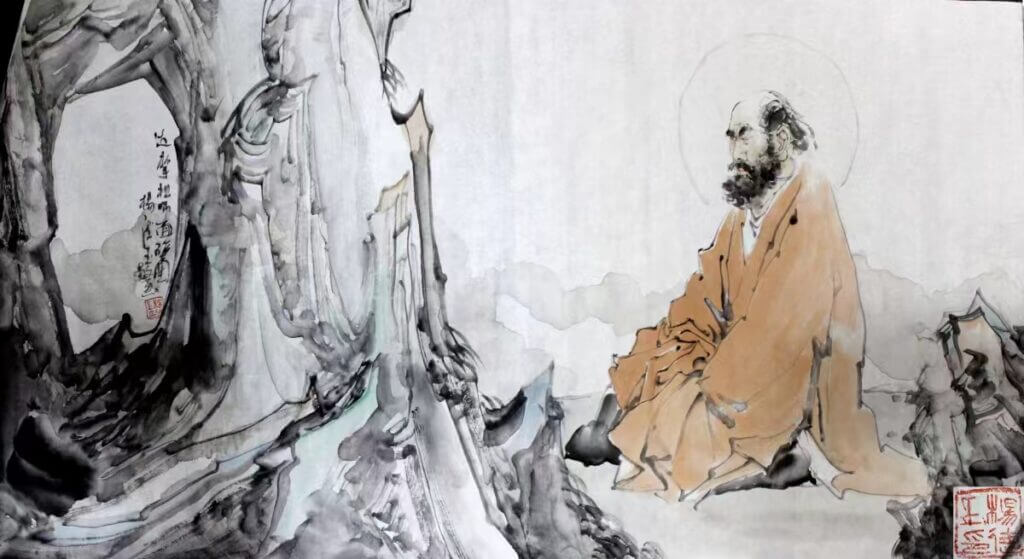
Martial arts and meditation share deep historical and philosophical roots. In many martial traditions, particularly in Asia, the practice of martial arts is intertwined with spiritual and meditative practices. For example:
Buddhism and Martial Arts: Buddhist monks in China, particularly at the Shaolin Temple, incorporated meditation into their martial arts training. The practice of Chan (Zen) Buddhism, with its emphasis on mindfulness and meditation, became an integral part of Shaolin Kung Fu.
Daoism and Internal Martial Arts: Daoist principles, emphasizing harmony and balance, are foundational to internal martial arts like Tai Chi and Bagua Zhang. These arts focus on cultivating internal and vital energy through meditative practices and gentle movements.
The Role of Meditation in Martial Arts Training
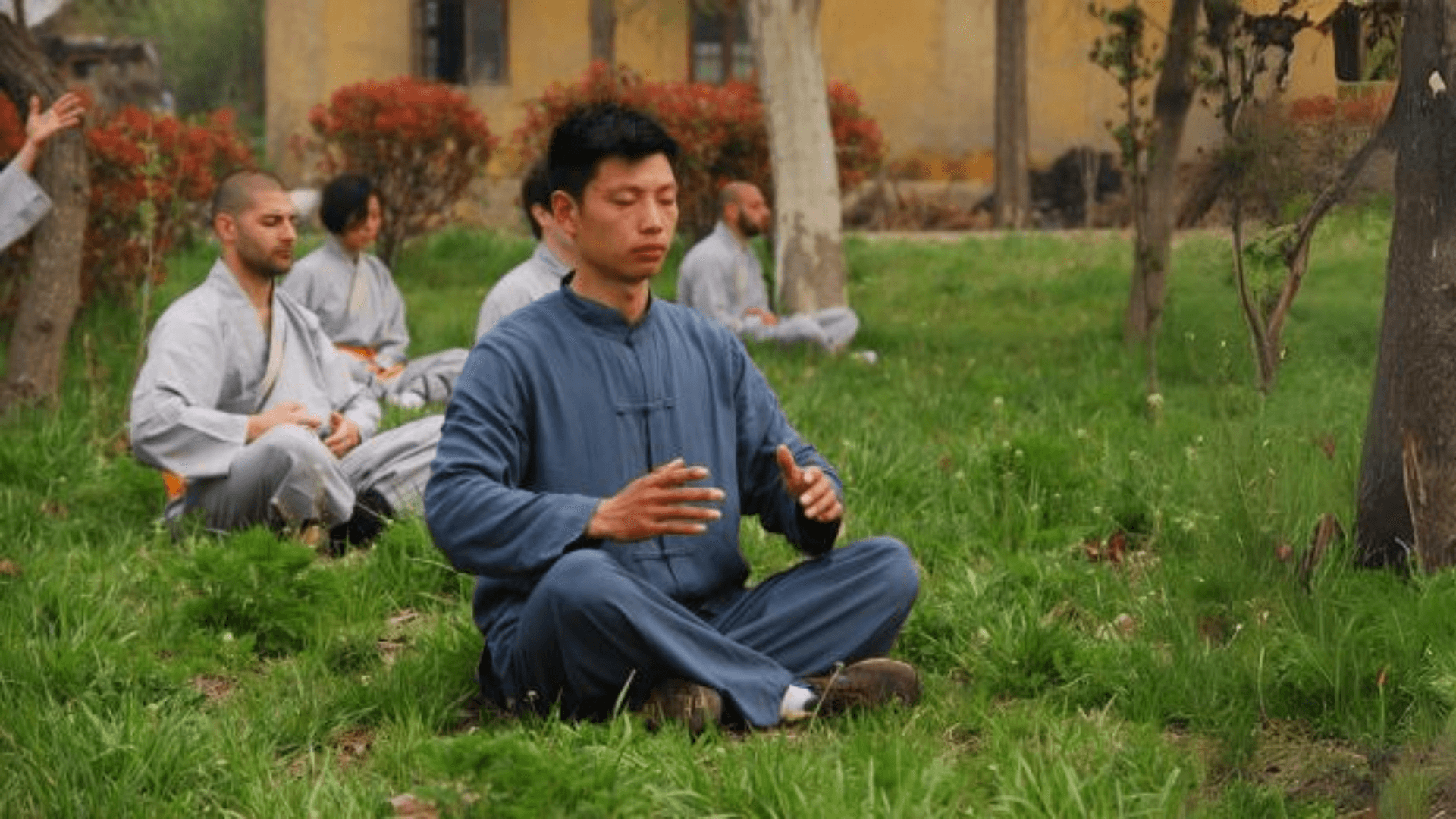
Enhancing Focus and Concentration: Meditation trains the mind to maintain a high level of focus and concentration. This mental clarity is crucial in martial arts, where a split-second decision can make a significant difference. Techniques such as mindful breathing and visualization help practitioners stay present and aware.
Improving Emotional Regulation: Martial artists often face high-stress situations, both in training and in potential real-life confrontations. Meditation helps in managing stress and emotions, promoting a calm and composed demeanor. This emotional control is vital for making rational decisions under pressure.
Developing Mind-Body Connection: Meditation enhances the awareness of one’s body and movements. This heightened sense of proprioception allows martial artists to execute techniques with greater precision and efficiency. Practices like body scan meditations can improve the sensitivity to internal bodily states, which is beneficial for martial arts training.
Cultivating Vital Energy (Qi): In internal martial arts, meditation is used to cultivate and control Qi, the vital life force. Techniques such as Qigong integrate meditative practices with physical movements to enhance the flow of Qi, leading to improved health, vitality, and martial prowess.
Practical Meditation Techniques in Martial Arts
Breathing Exercises: Controlled breathing is a fundamental aspect of both meditation and martial arts. Techniques like diaphragmatic breathing and the “4-7-8” method help in calming the mind and increasing oxygen flow to the body.
Mindfulness Meditation: This practice involves paying attention to the present moment without judgment. It can be incorporated into martial arts training by focusing on each movement, the sensations in the body, and the surrounding environment.
Visualization: Athletes often use visualization to improve performance, and martial artists are no exception. Visualizing successful execution of techniques, sparring scenarios, or achieving a state of calm can enhance actual performance.
Zen Meditation (Zazen): Originating from Zen Buddhism, Zazen involves sitting in a specific posture and focusing on the breath or a koan (a paradoxical question or statement). This practice develops deep concentration and mental fortitude.
Understanding Body Scan Meditations
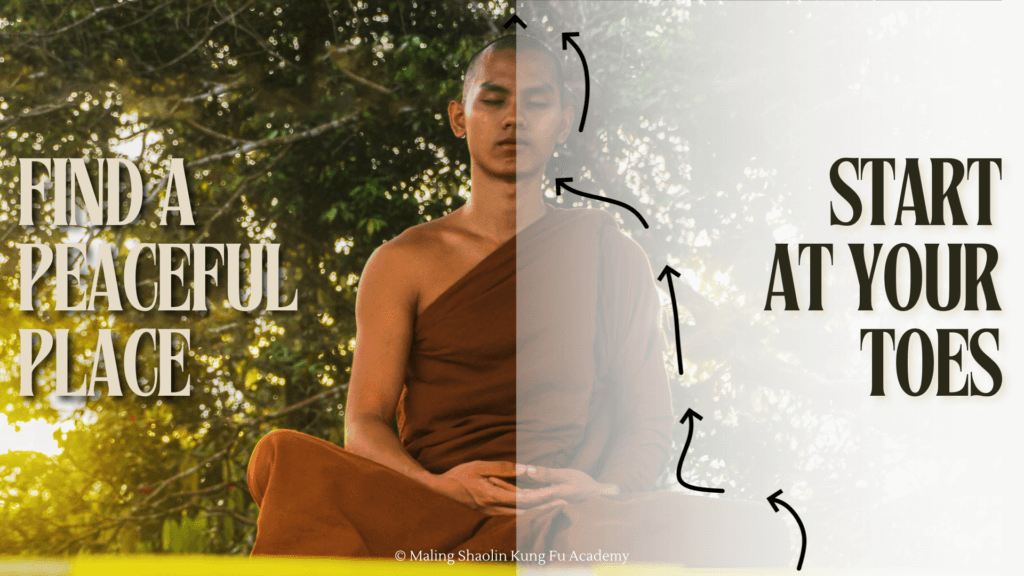
Body scan meditation is a mindfulness practice that involves mentally scanning your body from head to toe, bringing awareness to any sensations, tensions, or areas of discomfort. This practice helps to cultivate a deeper connection between the mind and body, promoting relaxation and overall well-being.
How Body Scan Meditation Works
1. Setting the Stage:
- Find a quiet, comfortable place where you won’t be disturbed. You can lie down or sit in a comfortable position.
- Close your eyes and take a few deep breaths to relax your body and mind.
2. Starting the Scan:
- Begin by focusing your attention on your toes. Notice any sensations, such as tingling, warmth, or tension.
- Slowly move your attention up through your feet, ankles, and calves, noticing any physical sensations without judgment.
3. Progressing Through the Body:
- Continue moving your focus upward, through your knees, thighs, hips, and so on, until you reach the top of your head.
- Spend a few moments on each body part, simply observing how it feels.
4. Releasing Tension:
- As you become aware of any areas of tension or discomfort, consciously try to relax those muscles and let go of the stress.
- If your mind starts to wander, gently bring your focus back to the body part you were attending to.
5. Completing the Scan:
- Once you have scanned your entire body, take a few more deep breaths and slowly open your eyes, bringing your awareness back to your surroundings.
Body Scan Meditation: Benefits and Application in Martial Arts
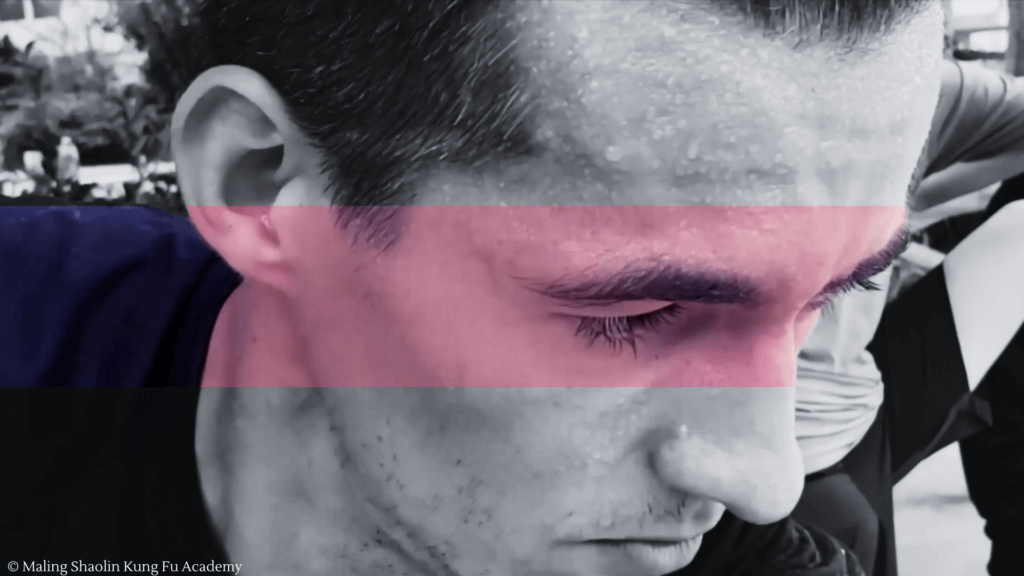
Body scan meditation is a mindfulness practice that involves focusing attention on different parts of the body in a systematic way. This technique promotes relaxation and awareness by helping practitioners tune into physical sensations and release tension.
Physical Awareness: Body scan meditation enhances physical awareness by encouraging practitioners to pay close attention to the sensations in their body. This heightened awareness is crucial for martial artists, as it helps them detect areas of tension or imbalance that could affect their performance.
Stress Reduction and Relaxation: One of the primary benefits of body scan meditation is its ability to reduce stress and promote relaxation. For martial artists, managing stress is vital for maintaining focus and composure during training and competitions. By regularly practicing body scan meditation, they can learn to relax their muscles and calm their mind, leading to better overall performance.
Improved Recovery: Recovery is an essential aspect of any physical training regimen. Body scan meditation aids in recovery by promoting relaxation and reducing muscle tension. This can help martial artists recover more quickly from intense training sessions and prevent injuries.
Mental Clarity and Focus: Martial arts require a high level of mental clarity and focus. Body scan meditation trains the mind to concentrate on specific sensations and maintain attention, which can translate to improved focus during martial arts practice. This mental discipline is crucial for executing techniques with precision and responding effectively to opponents.
Enhanced Mind-Body Connection: A strong mind-body connection is fundamental in martial arts. Body scan meditation reinforces this connection by encouraging practitioners to be fully present in their body. This mindfulness practice can lead to better coordination, balance, and overall physical performance.
Practical Application: In practice, martial artists can incorporate body scan meditation into their routine by setting aside time before or after training sessions. They can lie down or sit comfortably and slowly bring their attention to different parts of their body, starting from the toes and moving up to the head. By observing sensations without judgment and consciously releasing tension, they can achieve a state of relaxation and heightened awareness.
Body scan meditation is a powerful tool that bridges the gap between mind and body, fostering a deeper sense of awareness, relaxation, and overall well-being. Its integration into martial arts practice not only enhances physical performance but also promotes mental clarity and emotional balance, essential for mastering both the body and the mind.
Meditation Case Studies and Real-World Applications
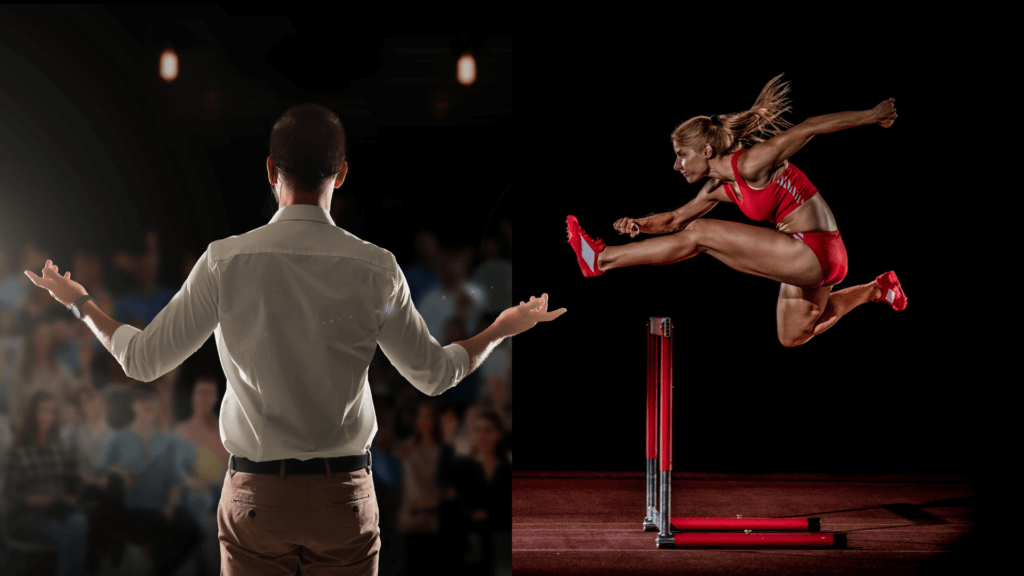
Shaolin Monks: Renowned for their incredible martial arts skills, Shaolin monks spend considerable time in meditation. This practice not only enhances their physical abilities but also cultivates mental discipline and spiritual growth.
Modern Martial Artists: Many contemporary martial artists, including MMA fighters, incorporate meditation into their training regimes. For instance, Georges St-Pierre, a former UFC champion, practices meditation to improve focus and manage stress.
Beyond Martial Arts: The benefits of meditation extend beyond martial arts into daily life. Improved mental clarity, emotional regulation, and stress management are valuable skills in any context. For children, meditation can enhance academic performance and social interactions. For adults, it can improve workplace productivity, athleticism, and personal relationships.
Conclusion
The connection between meditation and martial arts underscores the holistic nature of these ancient practices. By integrating meditation into martial arts training, practitioners can achieve a harmonious balance of mind and body, leading to enhanced performance, personal growth, and overall well-being. Embracing this connection allows martial artists to master not only their physical techniques but also their inner selves, embodying the true essence of martial arts.
